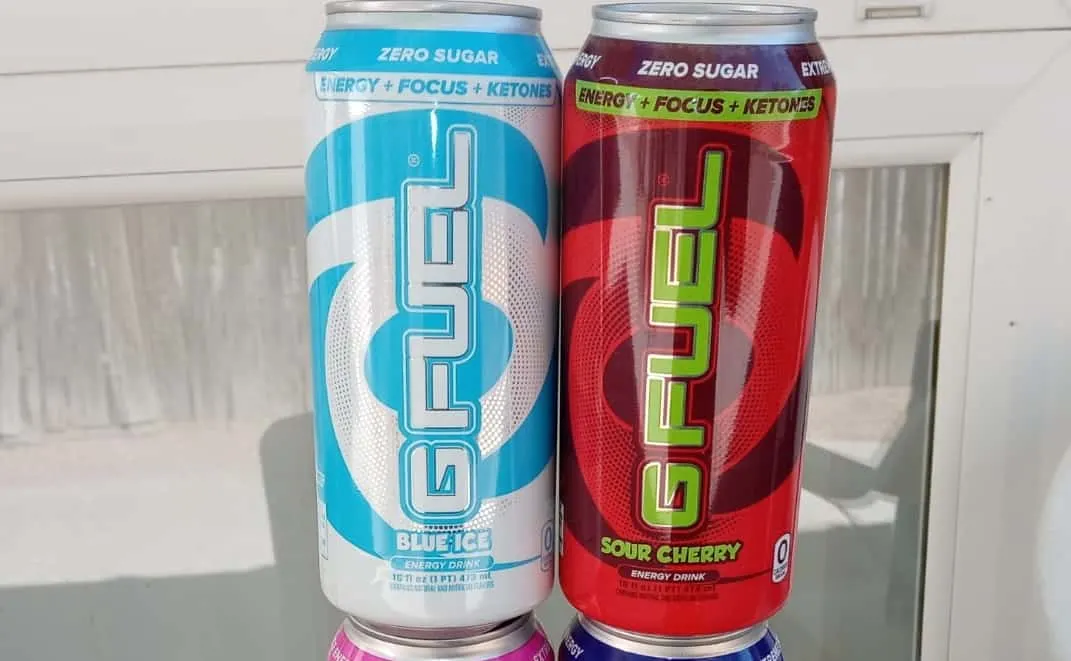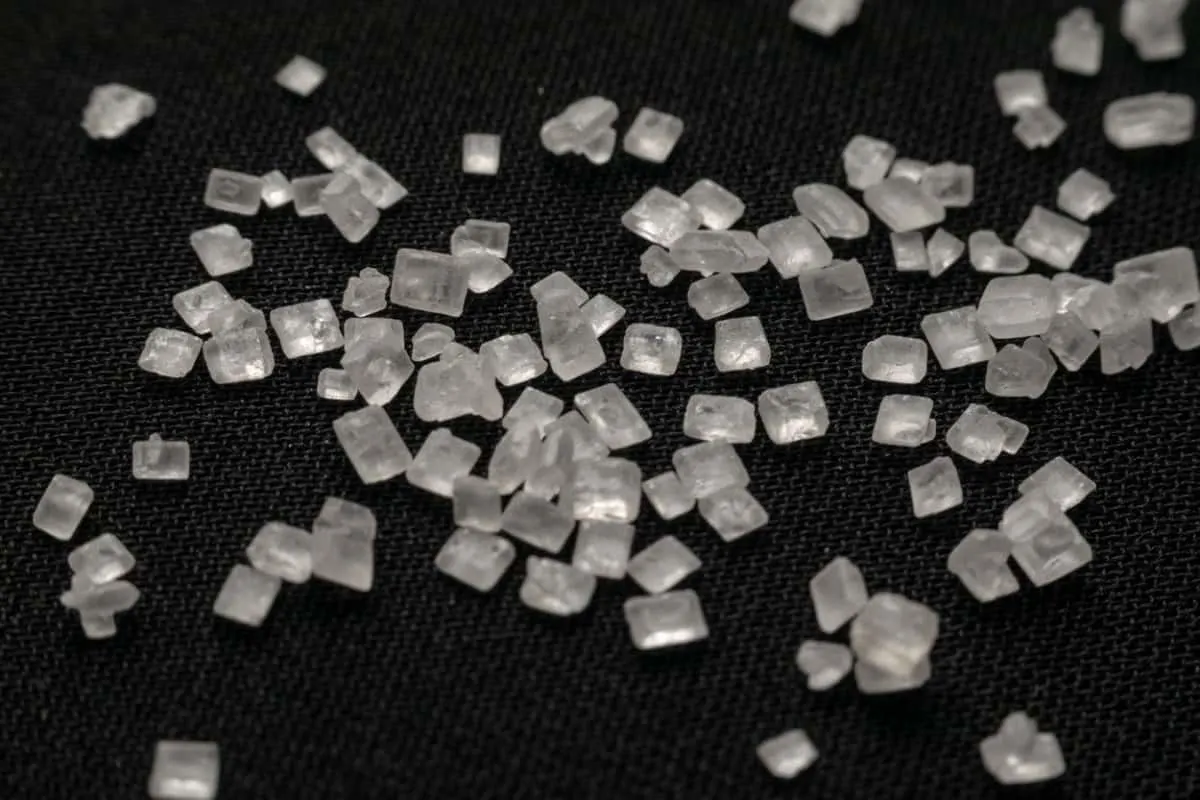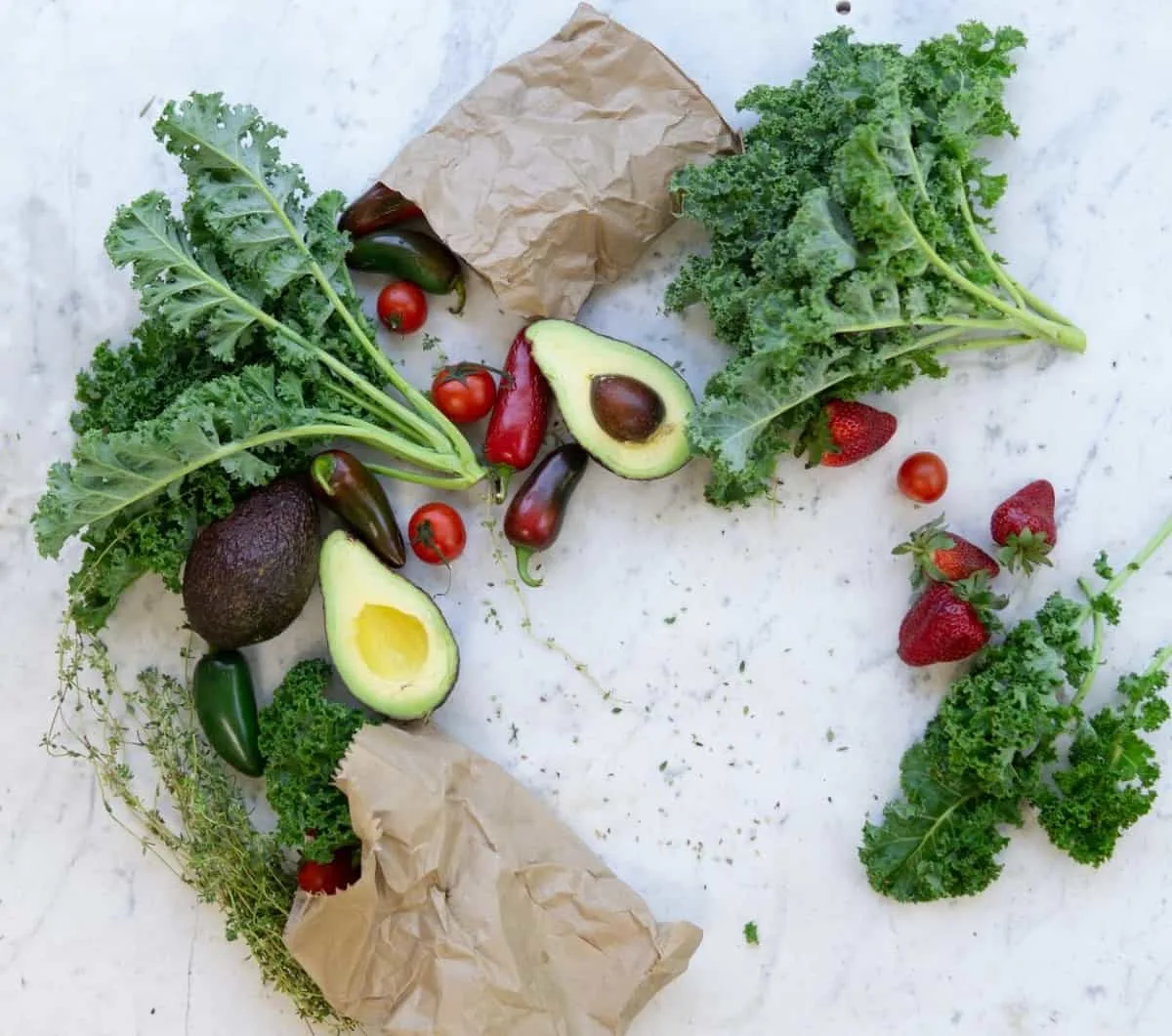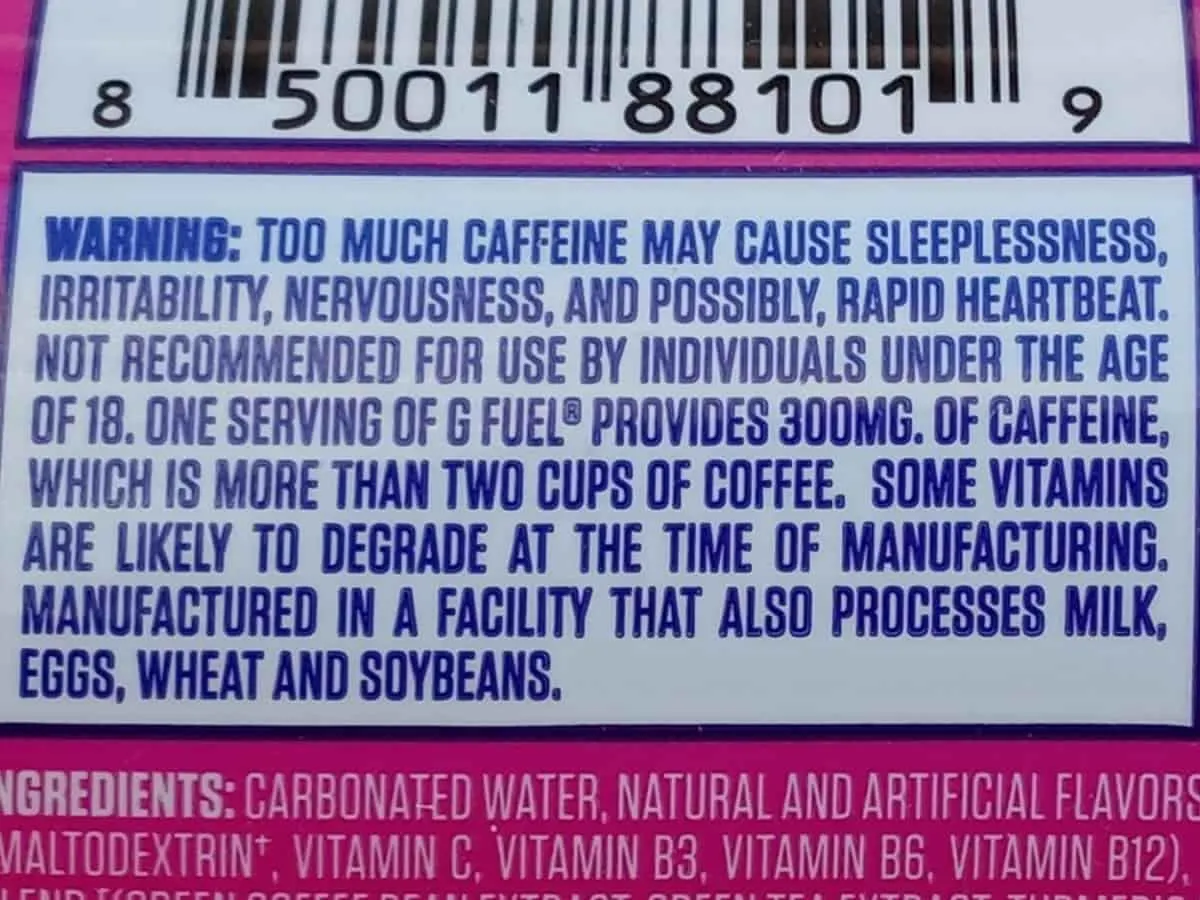Energy drinks are popular for energizing the body and bringing mental alertness. It’s also a good option for those who want an alternative to coffee.
Other than this, a drink like G Fuel is popular among athletes and gamers, but not much among people with a specific diet.
While G Fuel is a zero-sugar product, does this also mean that it’s a gluten-free brand?

G Fuel is generally gluten-free. That means it doesn’t actively contain any gluten-based products, but it could have trace amounts of gluten due to cross-contamination.
There are several factors that determine whether a product is gluten-free or not. It’s not just about being a non-animal by-product, but one should also know whether the ingredients used are not contaminated with any sources that contain gluten.
For answers, read through the article and learn more about G Fuel as a gluten-free drink plus other information about the product.
First, let’s define what a gluten-free diet is.
Contents
Why Go Gluten-Free?
Some people go gluten-free to lose weight and be healthier in some way. Others do it because they have no choice.
Put simply, a gluten-free diet is a dietary practice of excluding any and all sources of gluten from one’s diet.
Gluten is a kind of protein family found in grains. It also has two main proteins: glutenin and gliadin. Of the two, gliadin is the one responsible for the side effects most people associate with gluten.
The most known examples of grains that have gluten are barley, rye, and wheat. Unless stated otherwise, any product made from those grains will definitely have gluten in it.
The first thing anyone should do upon deciding to adopt a gluten-free diet is to educate themselves on possible sources of gluten and prevent cross-contamination.
Cross-contamination is when a food or ingredient that doesn’t normally have gluten ends up with trace amounts due to sharing storage and handling spaces with gluten-based products. Fortunately, manufacturers often state this on their website if their product has undergone cross-contamination.
At home, you can prevent this by cleaning your countertops or spaces where you deal with food and putting labels on containers.

A gluten-free diet is absolutely essential to properly manage some health conditions.
These health conditions are tied directly to what consuming gluten does to the person’s body and could result in serious harm to their health if not managed properly. Some of the reactions to gluten may are either due to celiac disease or a wheat allergy.
Considering that G Fuel contains gluten-free ingredients, it’s safe to assume that you can avoid said diseases and likewise get the right nutrition for your daily activities.
G Fuel Cans Ingredients

As written at the back of the can, here are the ingredients you can find in G Fuel:
- Carbonated Water
- Natural Flavors
- Artificial Flavors
- Sodium Gluconate
- Malic Acid
- Caffeine
- Potassium Beta-Hydroxybutyrate
- Maltodextrin
- Vitamin C
- Vitamin B3
- Vitamin B6
- Vitamin B12
- L-Tyrosine
- Sucralose
- Potassium Citrate
- Citric Acid
- Acesulfame Potassium
- Green Coffee Bean Extract
- Green Tea Extract
- Turmeric Extract
- Tart Cherry
- Blueberry
- Broccoli
- Kale
- L-Theanine
- Steviol Glycosides
For a better understanding as to why G Fuel is gluten-free, let’s go through its ingredients and some of their health benefits.
Is Caffeine Gluten-Free?
Yes, caffeine is gluten-free that’s processed from beans. So unless they were cross-contaminated in the facility the manufacturer used to process them, coffee beans don’t have gluten.
That means coffee is usually gluten-free too. However, using a creamer will raise your chances of coming into contact with gluten. This is because creamers sometimes have gluten as an active ingredient, especially if they’re flavored.
Are Natural Flavors Gluten-Free?
Natural Flavors are usually gluten-free and refer to anything from a plant or animal that is used to flavor food. So technically, this can include wheat and other grains that include gluten.
It doesn’t always though. It’s also possible to know when and when the Natural Flavors in a product likely contain gluten since manufacturers usually say so in the ingredients list.
That, or they include a warning about the ingredient mixed in the natural flavoring. You can also check the allergen warning if there is one, since that’s another thing that can tell you if a product contains wheat.
Is Maltodextrin Gluten-Free?
Maltodextrin is gluten-free that’s derived from malt.
Malt comes from barley; anything made from it would normally contain gluten because of that. The manufacturing process, which the starch goes through in order to make maltodextrin, removes the gluten.
If you’re unfamiliar with what maltodextrin is, it’s a substance that’s added to food to make it thicker, and prolong its shelf life. Since it’s cheap and easy to manufacture, you can find it in many foods and beverages.
| Purpose | Foods |
| Thickening agent | Instant pudding, gelatin, sauces, salad dressings |
| Preservative | Packaged foods |
| Sweetener | Canned fruits, desserts, powdered drinks |
Maltodextrin is also found in skin care products like lotion and shampoo.
Are Artificial Sweeteners Gluten-Free?

Artificial sweeteners are gluten-free.
The artificial sweeteners used in G Fuel cans are Sucralose and Acesulfame Potassium.
Sucralose is an artificial sweetener derived from sugar. The lab process consists of replacing three hydrogen-oxygen groups with three chlorine atoms.
Acesulfame Potassium is also made in a lab. It’s synthesized by combining Acetoacetic acid with Potassium.
The result of that process is an artificial sweetener that’s 200 times sweeter than table sugar, but has a bitter aftertaste. This aftertaste is why it’s often combined with sucralose when used to flavor food and beverages.
Likewise, artificial sweeteners are sugar substitutes that are used to cut down on sugar content without having to worry about the product’s taste. They’re normally much sweeter than regular sugar like Acesulfame Potassium is.
They also don’t contribute much to caloric content. It even goes to the extent that they’re labeled zero-calorie products, which means they add less than 5 calories per serving overall.
Although there is some evidence linking them to weight gain and other health issues, they are considered safe to consume by the FDA.
Are Stevia Sweeteners Gluten-Free?
Yes, Stevia sweeteners are gluten-free that come from the Steviol Glycosides from the Bertoni plant’s leaves.
The Bertoni plant can be found in Brazil, where it has been used in food for centuries. Its crude extract is also available as a dietary supplement on the market.
Stevia sweeteners are made by taking and purifying the Steviol Glycosides. This removes the bitter aftertaste the plant normally has and makes it easier to consume and mix in food.
After consumption, the stevia sweeteners from the food aren’t absorbed by the gastrointestinal system. Instead, the stevia that forms the backbone of the stevia sweetener’s structure is used as energy. Whatever remains is flushed out of the body via urine.
Is Kale Gluten-Free?

Kale is gluten-free that’s a leafy green vegetable with many benefits for the whole body. This makes it a good source of nutrients for people who want to follow a gluten-free diet and stay healthy enough to manage Celiac disease.
It includes health benefits such as:
- Antioxidant effects
- Calcium
- Vitamin C
- Vitamin K
- Iron
It’s also a good source of Beta Carotene (which turns into Vitamin A) that can help you improve your skin and hair quality.
Kale can also be prepared in many ways like boiling, sautee, braising, or steaming. Or if none of those are your preference, you can always eat it raw!
Eating kale offers many benefits, but that doesn’t make it risk-free. Depending on what medications you’re taking or what health conditions you have, kale’s high potassium content might not be good for you.
Is Sodium Gluconate Gluten-Free?
Sodium Gluconate is gluten-free used as an additive that adds nutrients, cleaner, and chelating agent in the food industry. It can also be used as a pH buffer and sweetener. It doesn’t contain anything tied to wheat, rye, or barley. I
You can find Sodium Gluconate in:
- Dairy products
- Fruits and vegetables
- Candy
- Cereals
- Baked products
- Meat
- Fish
- Eggs
- Salt and spices
- Tabletop sweeteners
Conclusion
G Fuel doesn’t actively have gluten products in its ingredients. However, there is a chance it was cross-contaminated through the facilities it was manufactured in.

It’s unfortunate, but cross-contamination is always a possibility for any product that isn’t explicitly labeled “gluten-free”. Otherwise, the ingredients check out just fine. So it’s unlikely that you’ll be getting any gluten reactions from a G Fuel can.
But if you’re still unsure about how safe the product is, or about how well it fits into your diet, I understand. In that case, you can do your own research and ask around about the brand and other alternatives for your diet
That, or you can consult a doctor or dietician for more details on specific ingredients and how they can affect your health. That also goes double if you’re also sensitive to the caffeine that makes G Fuel so effective.
